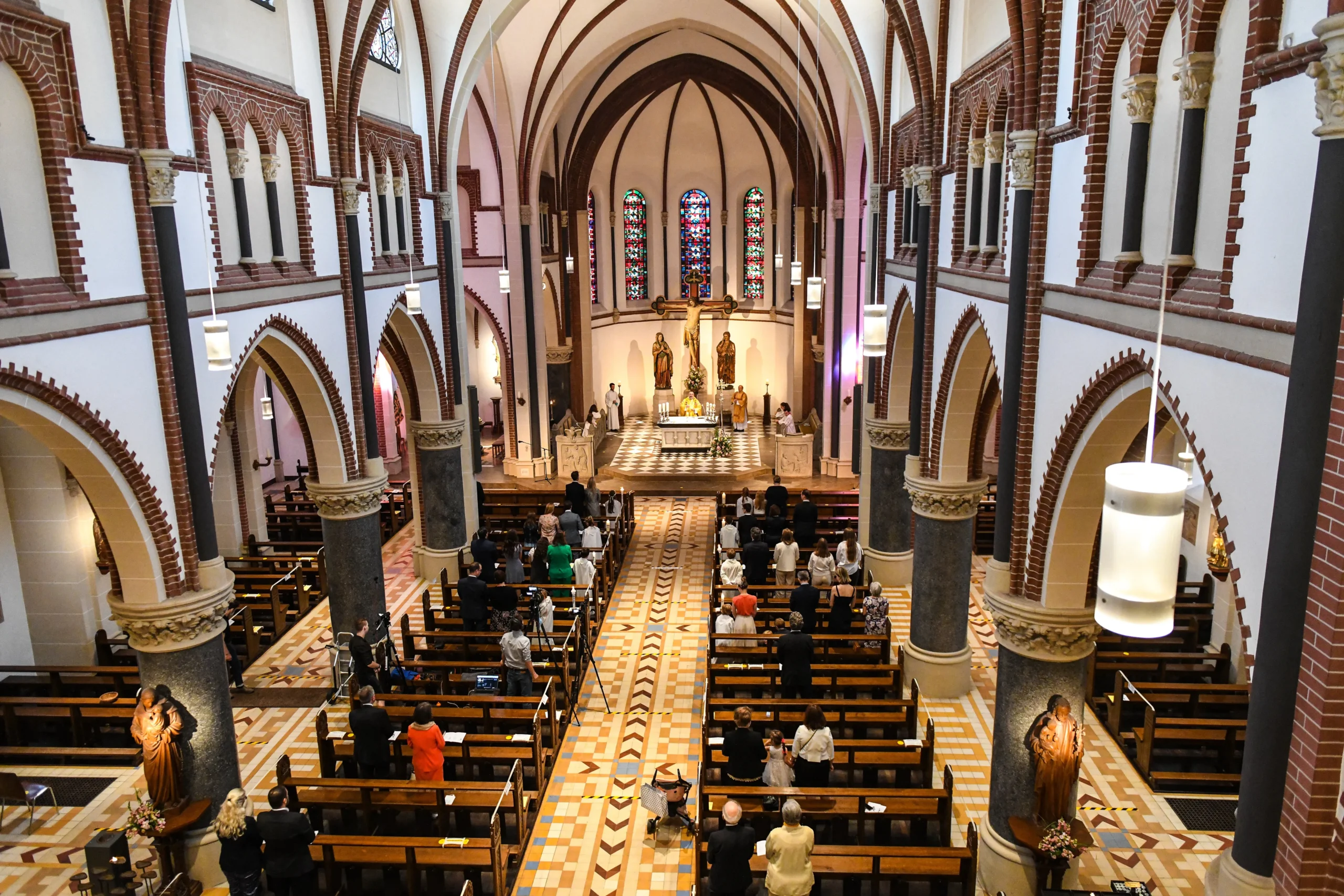Discovering the Rich History and Current State of Christianity in Germany: A Youth Pastor’s Perspective
Welcome to this exploration of Christianity in Germany. As Christians, we have a deep appreciation for the rich history and diversity of our faith around the world. In this article, we`ll take a closer look at the history of Christianity in Germany and explore the major denominations and their influence in the country.
We`ll also delve into some of the contemporary issues and challenges facing Christianity in Germany today, all while keeping a hopeful eye towards the future of our faith in this unique and important country.

So if you`re interested in learning more about the fascinating history and current state of Christianity in Germany, keep reading!
An Introduction to Christianity in Germany
Christianity in Germany has a rich and complex history, dating back over a millennium. Despite the country’s tumultuous past, Christianity has persevered and remains an integral part of German culture today.

The roots of Christianity in Germany can be traced back to the arrival of Saint Boniface in the 8th century. Brought as a missionary to spread the gospel throughout Europe, he founded numerous churches across what is now modern-day Germany.
Throughout its history, Christianity in Germany has faced various challenges – from religious wars to periods of persecution under communist rule. Despite these obstacles, faith communities have remained resilient and continue to thrive today.
Today, there are several major Christian denominations represented in Germany – including Protestantism (Lutheran and Reformed) as well as Roman Catholicism. There are also small but growing populations of Orthodox Christians and other non-traditional groups.
One unique aspect of German Christianity is its strong emphasis on social justice issues. Many churches actively engage with political movements advocating for peace, refugee rights or environmental protection – reflecting their deep commitment towards societal reforms based on Christian values such as love for one’s neighbor or stewardship over creation
Overall, despite facing challenges throughout its long history – including during World War II when many Christians were persecuted alongside Jews – German Christians continue to live out their faith boldly amidst diverse cultures within their nation while also being involved globally through missions work abroad or welcoming refugees fleeing violence elsewhere around our world!
The history of Christianity in the country
The history of Christianity in Germany is a rich and complex tapestry that spans over a millennium. It all began with the arrival of Saint Boniface, also known as the Apostle to the Germans, who brought Christianity to Germanic tribes in the eighth century.
Throughout its history, Germany has been home to many influential Christian figures such as Martin Luther, whose Protestant Reformation movement had a profound impact on Europe’s religious landscape. The country has also seen significant moments like World War II where Christians played an important role in resisting Nazi ideology.
Today, Christianity remains an essential part of German culture with over 50 million people identifying themselves as Christians. However, it’s not without its challenges; secularism and declining church attendance have caused concern for some leaders within this community.
As Christian youth pastors around the world teach about different aspects of faith across various cultures and regions globally – understanding how Christianity came to be so integrated into German society can provide valuable insights into how believers can thrive amidst adversity today.
In conclusion- while Germany’s journey towards spreading gospel may have been marked by ups-and-downs – Its resilience throughout generations serves testament that wherever there are those willing enough – no matter what obstacles they face- they will continue bringing light and hope through their unwavering faith.
Major denominations and their influence on Germany

Germany is a country with a rich history of Christianity, and it has been home to many different denominations over the years. The major denominations in Germany are Protestantism, Roman Catholicism, and Eastern Orthodoxy.
Protestantism is the largest denomination in Germany. It traces its roots back to Martin Luther’s Reformation movement in the early 16th century. Today, there are several branches of Protestantism represented in Germany including Lutheran, Calvinist/Reformed and United churches.
Roman Catholicism also has a significant presence in Germany. It was introduced into what is now modern-day Germany during the Roman Empire but really took hold during Charlemagne’s reign as Holy Roman Emperor between 768-814 AD.
Eastern Orthodoxy may not be as large as Protestant or Catholic Christianity within German borders; however it still remains important for those who follow this faith structure while residing here.
Each denomination brings its unique beliefs and practices that have shaped German culture over time. This diversity can provide insight into how people around the world approach religion differently yet ultimately share similar moral values at their core.
As Christian youth pastors we must recognize that understanding these differences can help us better understand our own faith journey while also fostering growth through fellowship with other believers from diverse backgrounds.
Contemporary issues and challenges facing Christianity in Germany
As the world becomes increasingly diverse and secular, Christianity in Germany faces a number of contemporary issues and challenges. One of the biggest challenges is declining membership, as fewer Germans identify as Christians or attend church regularly.
Another challenge facing Christianity in Germany is the rise of alternative spiritual practices such as New Age beliefs or Eastern religions. These new religious movements are often seen as more inclusive and flexible than traditional Christian denominations.
In addition to these internal challenges, Christianity in Germany also faces external pressures from political forces that seek to limit religious expression or promote secularism. This has led to debates about issues such as public displays of religion, faith-based education, and even religious symbols like crosses on public property.
Despite these challenges, there are still hopeful signs for Christianity in Germany. Many churches have embraced new forms of worship and outreach that appeal to younger generations who may be less interested in traditional liturgy. Additionally, efforts are being made at both local and national levels to build stronger interfaith relationships with other communities.

Ultimately though it will be up to individual Christians themselves – whether they choose apathy towards their faith during times where doubt looms over them like a stormy cloud; Or if they choose instead perseverance through prayerful guidance provided by God’s Word which can guide us all out from under even darkest clouds into sunny skies once again!
The Future of Christianity in Germany
The future of Christianity in Germany is a topic that has been hotly debated among theologians and church leaders. As the country continues to become more secularized, many wonder what lies ahead for the faith.
However, despite declining church attendance and growing skepticism towards religion in general, there are signs of hope for German Christians. Many churches have embraced a more progressive theology, focusing on social justice issues such as immigration and environmentalism.
Additionally, there has been a resurgence of interest among young people in exploring spirituality outside of traditional religious structures. This presents an opportunity for Christian youth pastors to engage with this demographic by offering alternative forms of worship and community building.
Furthermore, Germany’s increasingly diverse population offers another avenue for growth within Christianity. Churches can reach out to immigrants from different cultural backgrounds by incorporating their customs into services or creating separate language-specific congregations.

Overall, while the challenges facing Christianity in Germany cannot be ignored, there is reason to believe that the faith will continue to evolve and adapt alongside societal changes. By embracing new ideas while staying true to core values like love and compassion towards all people regardless their background or beliefs , Christians can ensure its continued relevance well into the future around not only Germany but also around world at large .
Conclusion
Christianity has been a central part of the German culture for centuries. Although there are many challenges and controversies, believers have continued to practice their faith with great strength and resolve. The future of Christianity in Germany is uncertain but hopeful; as young Christians choose to boldly proclaim their beliefs in the face of adversity, they serve as an example for others who seek truth and spiritual growth. We invite you to join us on this journey by deepening your understanding about Christianity in Germany today!












